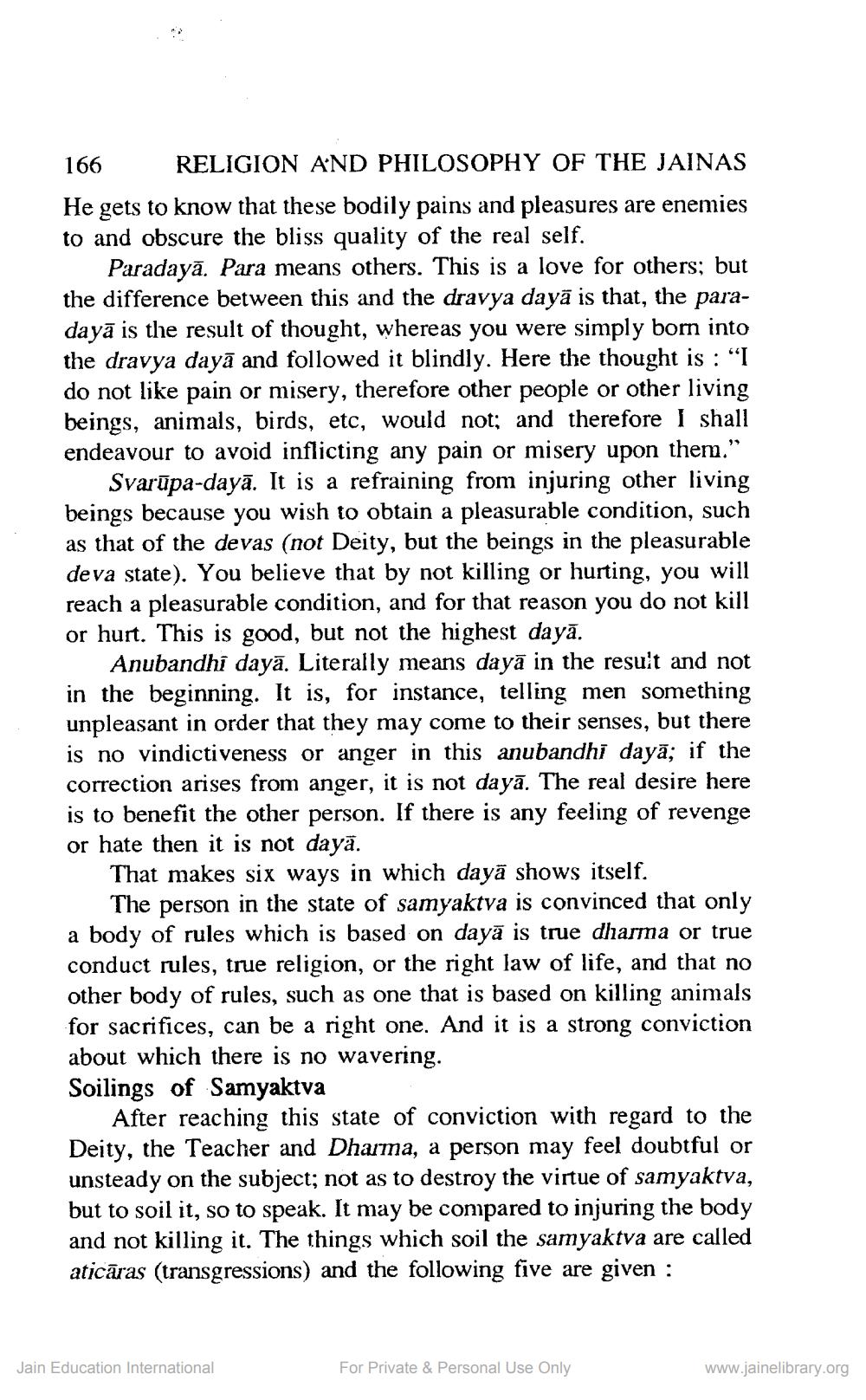________________
166 RELIGION A’ND PHILOSOPHY OF THE JAINAS He gets to know that these bodily pains and pleasures are enemies to and obscure the bliss quality of the real self.
Paradayā. Para means others. This is a love for others; but the difference between this and the dravya dayā is that, the paradayā is the result of thought, whereas you were simply born into the dravya dayā and followed it blindly. Here the thought is : “I do not like pain or misery, therefore other people or other living beings, animals, birds, etc, would not; and therefore I shall endeavour to avoid inflicting any pain or misery upon them."
Svarūpa-dayā. It is a refraining from injuring other living beings because you wish to obtain a pleasurable condition, such as that of the devas (not Deity, but the beings in the pleasurable deva state). You believe that by not killing or hurting, you will reach a pleasurable condition, and for that reason you do not kill or hurt. This is good, but not the highest dayā.
Anubandhi dayā. Literally means dayā in the result and not in the beginning. It is, for instance, telling men something unpleasant in order that they may come to their senses, but there is no vindictiveness or anger in this anubandhi dayā; if the correction arises from anger, it is not dayā. The real desire here is to benefit the other person. If there is any feeling of revenge or hate then it is not dayā.
That makes six ways in which dayā shows itself.
The person in the state of samyaktva is convinced that only a body of rules which is based on dayā is true dharma or true conduct rules, true religion, or the right law of life, and that no other body of rules, such as one that is based on killing animals for sacrifices, can be a right one. And it is a strong conviction about which there is no wavering. Soilings of Samyaktva
After reaching this state of conviction with regard to the Deity, the Teacher and Dharma, a person may feel doubtful or unsteady on the subject; not as to destroy the virtue of samyaktva, but to soil it, so to speak. It may be compared to injuring the body and not killing it. The things which soil the samyaktva are called aticāras (transgressions) and the following five are given :
Jain Education International
For Private & Personal Use Only
www.jainelibrary.org




